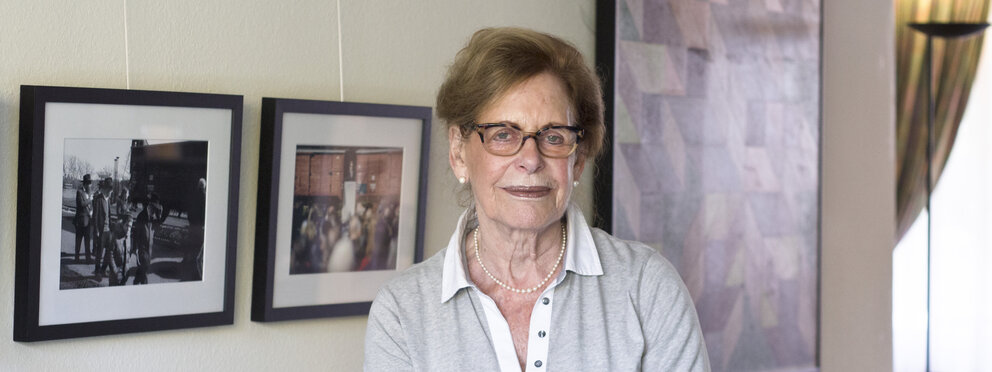
Eva Weyl
Kurzbiografie
Eva Weyl was born on 7 June 1935 in Arnhem in the Netherlands. Her parents had previously emigrated from Germany to the Netherlands. Her grandfathers soon followed her to the Netherlands, where Eva and her family had a wonderful childhood until they were sent to the Westerbork camp in 1942.
Here, too, she was lucky enough to be protected by her parents as best she could. She attended school, the family narrowly escaped several deportations and lived in Westerbork until the liberation.
After the war, Eva Weyl studied in America and Switzerland, travelled a lot, started a family and worked hard. The family celebrated 12 April, the day of liberation, every year. This is still an important date for Eva Weyl today. At the end of his life, her father went to his old school in his home town of Kleve twice to tell his story, and it was important to him that Eva also knew the family's history and passed it on. Today, this has become her life's mission - to tell her story to young people.
"Because you are now my witnesses. Don't forget that. I need you to continue telling my story."
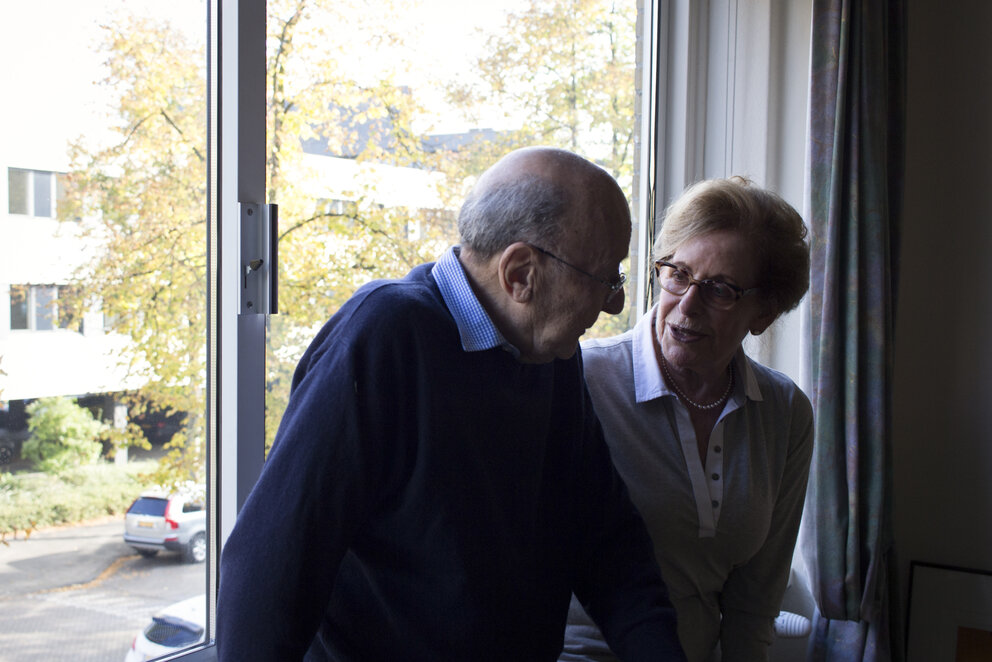
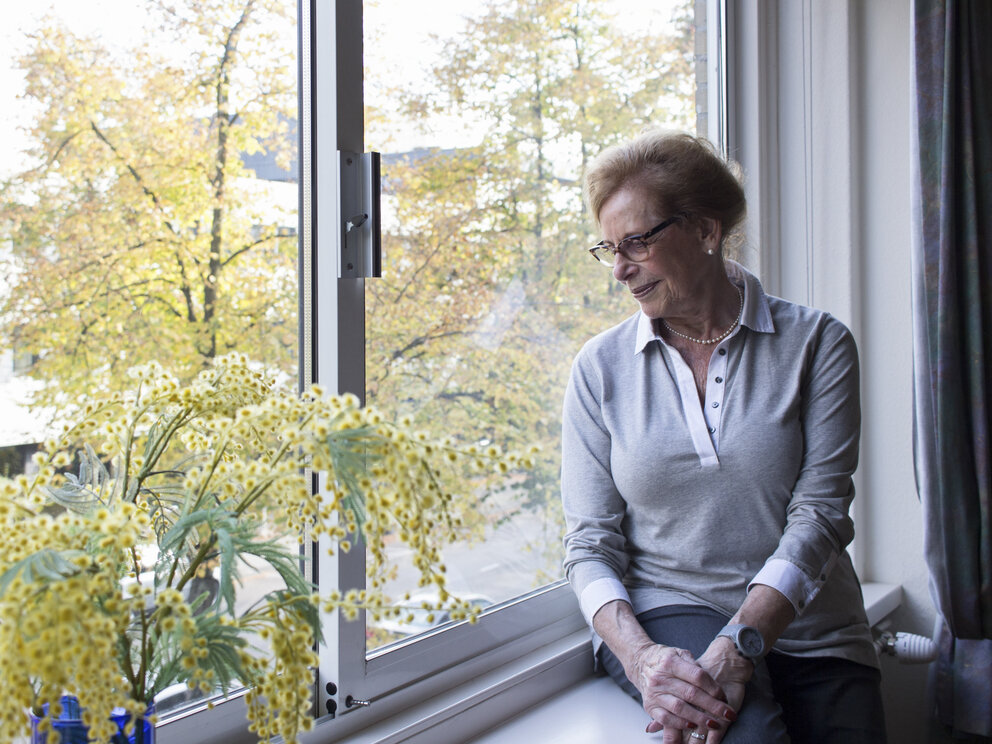
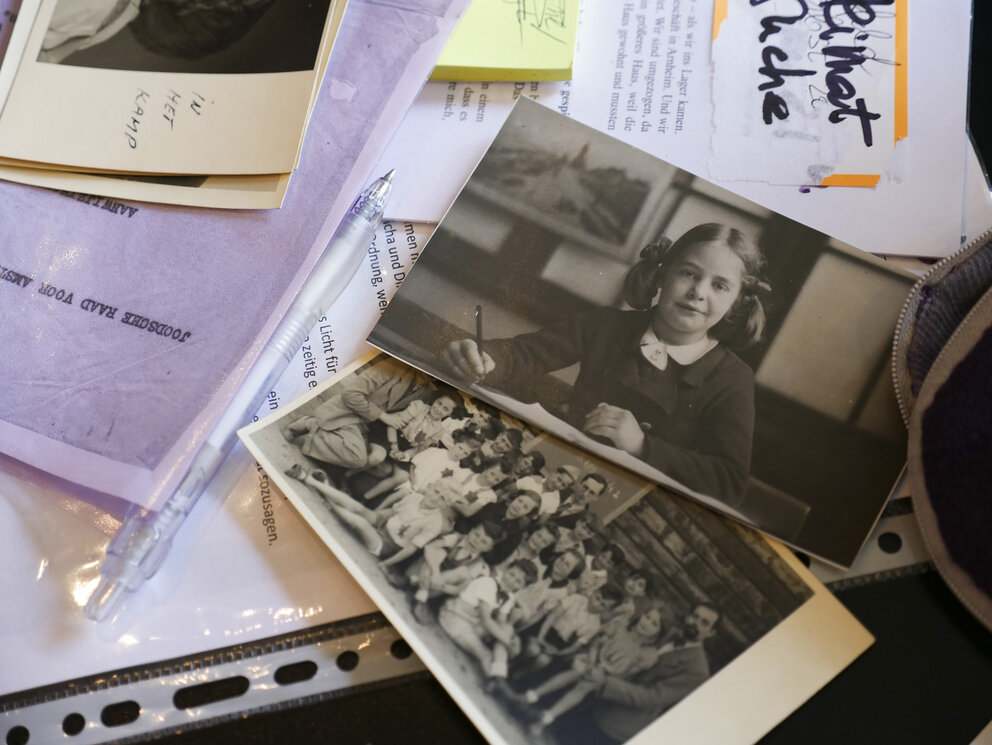
A picture to live on
When asked what had helped her to start a new life, Eva Weyl did not immediately know the answer. It was only in the course of the conversation that she suddenly said: "The death of my mother". Because the burden of the past was always present, the relationship between mother and daughter was strained and a burden for Eva. Almost justifying herself, Eva explained that it was only after her mother's death that she realised what a burden had been lifted from her. The image of the sky on the day of our conversation was our joint depiction of this late-won freedom.
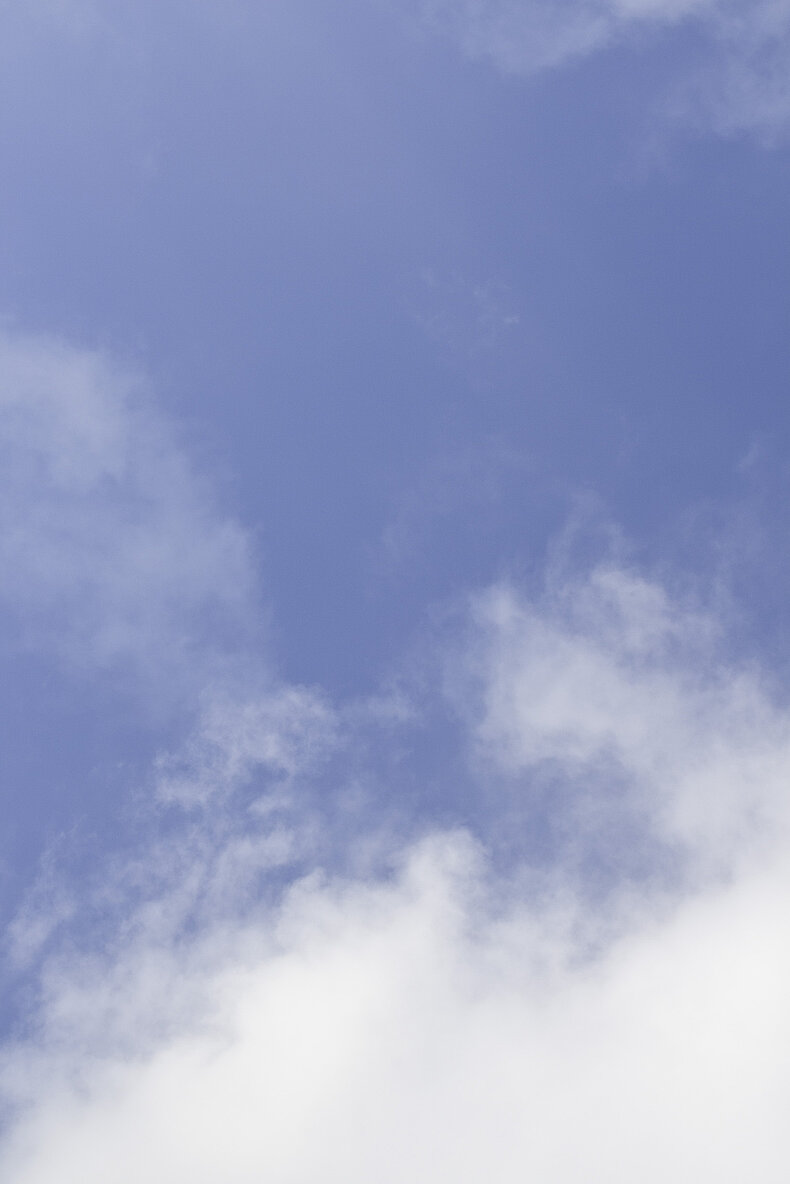
Our encounter
As Eva tells us about her life, as a listener you quickly realise that talking to us is a matter close to her heart. As Marina had already heard Eva's story in a school the day before our conversation, she doesn't tell us all the details again. Nevertheless, it takes a lot of energy for her to tell us. It is all the more beautiful when she talks about her time after the war: about the time when she learnt to love and was able to let go of things from her past. I am very impressed by how far Eva lets us into her life as complete strangers. I have the phrase from a student floating around in my head: "I know you now." And there is some truth in that!
At our second meeting, we travel to Eva's place in Amsterdam. In her stylishly furnished flat, the many photos of family and friends immediately catch my eye. Sometimes a picture is worth a thousand words. Eva is an excellent hostess. She won our hearts at the latest when she served up the "Filet americains". It's not just her hospitality, but also her genuine interest in us and the ZWEITZEUGEN e.V. project that makes Eva such a special person. It turns out that Eva likes asking us questions just as much as we like asking her. After a far too short day, we make our way home again. For my part, I am thoughtful, but also touched and happy to have met Eva.
